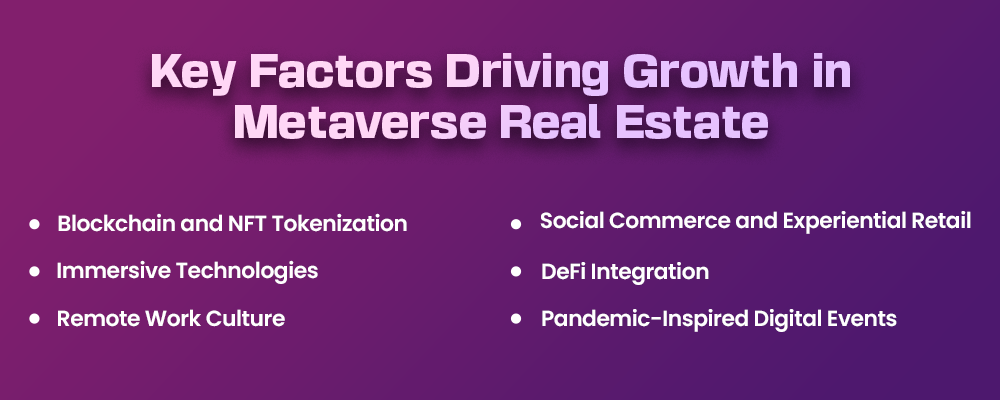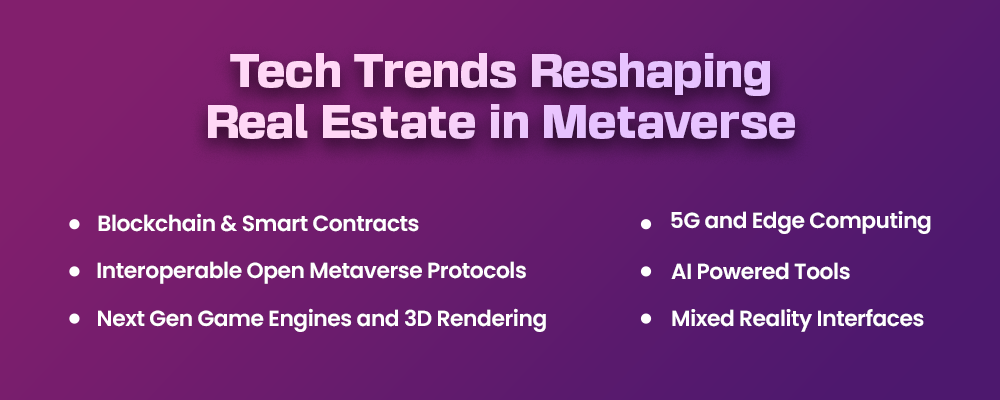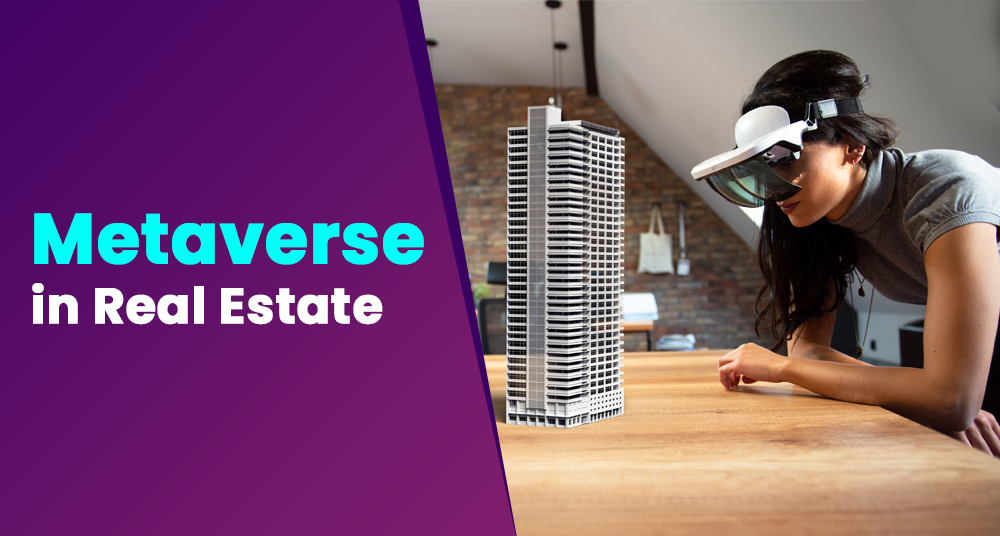As we approach 2030, the Metaverse in Real Estate is no longer a speculative concept—it’s rapidly becoming a tangible, transformative reality. Imagine walking through multi-million-dollar virtual penthouses, attending a tokenized art exhibition housed in a digital skyscraper, or buying and leasing virtual plots next to an ultra‑lux metaverse mall. This post explores how the Metaverse in Real Estate ecosystem is shaping up by 2030, covering its definition, projected market size, key drivers, real-world applications, enabling technologies, and our long-term vision.
What is Metaverse in Real Estate?
Simply put, the Metaverse in Real Estate refers to digital constructs—virtual lands, buildings, and environments—where users can buy, sell, rent, build, and inhabit properties through immersive, player-controlled avatars. These virtual spaces exist across various interconnected platforms powered by blockchain, augmented reality (AR), virtual reality (VR), game engines, and decentralized finance (DeFi). Unlike traditional real estate, these properties reside entirely in a persistent digital universe accessible over the internet. They can simulate commercial districts, residential housing, entertainment complexes, galleries, and social gathering places—all without a brick or mortar.
Central to the concept is tokenized ownership: land parcels and buildings in virtual worlds are authenticated via non-fungible tokens (NFTs), providing verifiable proof of ownership, provable scarcity, and ease of transfer. Users can monetize their virtual holdings by selling NFTs, leasing their spaces, creating experiences, or hosting events. The Metaverse in Real Estate merges digital creativity with economics, blurring the lines between gaming, investment, and social interaction.
Metaverse in Real Estate: Growth Projections & Market Size
Forecasts for the Metaverse in Real Estate are staggering. The global metaverse real estate market, which captures virtual land, buildings, architecture, and associated services. The global metaverse real estate market was valued at USD 2.99 billion in 2024. It is expected to grow to USD 4.12 billion by 2025 and then surge to around USD 67.40 billion by 2034. This represents a compound annual growth rate (CAGR) of 36.55% between 2025 and 2034.
Several trends underpin this explosive growth:
- Institutional Investment: Major financial firms and venture capitalists are allocating billions to metaverse startups, virtual land funds, and platform tokens.
- Platform Expansion: Beyond early pioneers like Decentraland, The Sandbox, and Cryptovoxels, new players (MetaWorld, Somnium Space, and enterprise-grade platforms) are entering, diversifying and expanding ecosystem reach.
- Corporate Real Estate Presence: Global brands are acquiring virtual real estate for immersive digital showrooms and branded experiences.
- Secondary Services: Architecture, interior design, events, and metaverse consulting services are emerging as significant revenue streams.
By 2030, virtual land portfolios may rival commercial-grade real estate funds in scale and financial gravity—albeit denominated in crypto-tokens rather than dollars.
Market Drivers for Metaverse in Real Estate

Several critical drivers are propelling the rise of Metaverse in Real Estate:
Blockchain and NFT Tokenization
Ownership transfers are seamless: buying a virtual building is as easy as purchasing its NFT—secure, transparent, and supported by smart contracts that automate leasing, royalties, and secondary-market transactions.
Immersive Technologies (VR, AR, Mixed Reality)
By 2030, consumer-grade VR headsets will be lighter, affordable, and wireless. Virtual meetings, remote work, and digital experiences will increasingly shift into realistic 3D environments, making virtual real estate more valuable.
Remote Work Culture and the Hybrid Economy
The pandemic permanently altered how and where people work. Virtual offices are growing—forward-thinking enterprises are setting lease agreements for team HQs inside metaverses. The Metaverse in Real Estate caters to hybrid work using virtual HQs, client meeting spaces, and co-working venues.
Social Commerce and Experiential Retail
Shoppers increasingly expect immersive and interactive platforms. Fashion brands, virtual galleries, automotive showrooms, and experiential venues thrive in the intersection of commerce, entertainment, and virtual property.
Decentralized Finance (DeFi) Integration
Virtual real estate loans, yield-bearing stakes in virtual infrastructure, and fractional NFT ownership become standard financial offerings—enhancing adoption and unlocking liquidity.
Pandemic-Inspired Digital Events
Music festivals, conferences, and sporting events moved online. A ton of gatherings now rely on metaverse infrastructure, increasing demand for branded virtual venues and rentable properties.
Metaverse in Real Estate: Use Cases & Industry Applications
The potential applications of Metaverse in Real Estate are vast—and still unfolding:
Virtual Residential Communities
As people adopt metaverse living, residential communities will form. From cozy apartment blocks to sprawling estates, avatars will buy homes, furnish them with digital assets, and host digital gatherings. Landholders may subdivide virtual neighborhoods, license them, or lease them with customizable rental options.
Virtual Commercial and Retail Spaces
Leading fashion labels are creating virtual versions of their flagship stores in the metaverse. These digital retail zones allow customers to browse, try on, and purchase virtual apparel using avatars. Brands monetize via virtual item sales or by selling NFTs linked to physical goods.
Corporate Headquarters and Event Venues
By 2030, businesses will host client meetings, employee training sessions, and industry events in VR-constructed HQs. Conference spaces, amphitheaters, and auditoriums in virtual venues can handle thousands of avatars simultaneously.
Virtual Tourism and Property Showcase
Real-world realtors leverage metaverse platforms to build virtual replicas of properties before they’re built. Buyers use VR headsets to walk through digitized models of homes still in the construction phase, opening new horizons for remote purchasing.
Education, Training, and Simulation
Universities and vocational schools rent virtual campuses and classrooms to simulate complex environments—like construction sites, medical labs, and architectural walkthroughs—enhancing training with immersive realism.
Asset-Based Income Generation
Virtual properties can be used to generate income: leasing land for branded experiences, hosting ticketed events (concerts, festivals), installing billboards, or running branded cafes and entertainment zones.
Technologies & Infrastructure Transforming Real Estate in Metaverse

The robust foundation of Metaverse in Real Estate relies on several converging technologies:
Blockchain & Smart Contracts
Smart contracts tied to those tokens automate transactions, fractional ownership, leasing, and royalty distributions—guaranteeing trust and transparency.
Interoperable Open Metaverse Protocols
The vision includes seamless avatars and assets crossing platforms—from one metaverse to another—providing portability for tools, wearables, land, and identity. Standardization efforts like the Metaverse Interoperability Standard (MIS) and Universal Avatar initiative are promoting cross-chain compatibility.
Next‑Gen Game Engines and 3D Rendering
Tools like Unreal Engine 5 and Unity 2025 enable real-time realistic visuals, dynamic lighting, physically accurate materials, and photo-real avatars.
5G and Edge Computing
High-speed, low-latency network infrastructure is essential for lag-free immersive experiences. As 5G adoption spreads and edge data centers multiply, users access ultra-realistic, VR-grade environments on mobile devices.
AI‑Powered Tools
AI helps personalize user experiences, optimize property management, and simulate market conditions for better investment decisions.
Mixed Reality Interfaces
While a large population embraces VR, Mixed Reality (MR) glasses and AR overlays enable users to bring virtual buildings into their physical surroundings—turning their living rooms into virtual galleries or designing in real time.
Vision: Real Estate in 2030
Let’s envision Metaverse in Real Estate circa 2030:
- A broker at a downtown Dubai office offers clients a side-by-side comparison: a fully furnished virtual condo with automatic escrow via NFT sale, and a real-world smart-home community ready for move-in.
- Developers sell plots of land in the new Metacity Launchpad, complete with foundational infrastructure and AR-ready environment kits.
- Influencers host interactive fashion weeks in virtual buildings where users buy NFT-based attire, wear it to social events, and showcase it across platforms.
- Education becomes more immersive: students attend virtual universities whose campuses span continents and cultures, interacting via avatars in lecture halls and social hubs.
- Architects and builders use digital twins to co-develop physical towers; decisions on façades, airflow, and materials are tested on the digital model before construction begins.
- Owners of virtual properties receive passive income from leasing cafés, showrooms, billboards, and event spaces—all managed by smart contracts.
By 2030, virtual and physical realms will blur so seamlessly that real estate investors will allocate capital not only to farmland and skyscrapers, but also to beachfront NFT islands and digital skyscrapers that host live events—and realize substantial returns.
Synarion IT Solutions Unlocking New Possibilities in Real Estate through the Metaverse
At Synarion IT Solutions, we harness the power of the metaverse to revolutionize the real estate industry. From immersive virtual property tours to interactive, blockchain-secured transactions, we create cutting-edge digital environments that transform how buyers, sellers, and agents connect. Discover a future where real estate transcends physical boundaries — all powered by Synarion.
Concluding Thoughts
The Metaverse in Real Estate is not just a futuristic novelty—it represents a fundamental shift in how digital and physical environments intermingle, how ownership is recorded, and how experiences are delivered. As we approach 2030, this digital real estate frontier emerges as a major asset class, a fertile space for social interaction, branding, creative expression, and financial innovation.
For investors: early entry into metaverse land markets could yield first-mover advantages as virtual plots appreciate—mirroring the early days of coveted city-center apartments or beachfront estates. For designers and developers: metaverse properties offer new design paradigms and revenue streams. For everyday users: owning a personalized virtual flat, renting storefronts, or attending immersive events will become commonplace.
The Metaverse in Real Estate will not replace its physical counterpart—but rather complement it. In 2030, virtual land and real land will co‑exist as parallel asset classes. Savvy stakeholders will understand the symbiosis between physical construction and digital manifestation, building diversified portfolios across both realms.
Key Takeaways
- Metaverse in Real Estate refers to digital properties tokenized via NFTs that users can buy, build, and monetize.
- The metaverse in real estate market size may reach USD 67.40 billion by 2034, driven by blockchain, immersive tech, corporate presence, and DeFi integration.
- Use cases span virtual residences, corporate HQs, retail zones, event venues, education, and tourism.
- Core tech includes blockchain, AI, 5G, MR/VR, and interoperability standards.
- By 2030, virtual and real estate portfolios will converge, with cross-realm value creation.
In a decade, when you think about prime-time real estate, expect skyscrapers that exist in virtual worlds, art galleries floating above digital oceans, or offices and concert halls made purely of code—all packaged, owned, and traded as real assets. The Metaverse in Real Estate revolution is coming—and for those who prepare, it’s one of the most exciting investment frontiers of our time.
Useful Resource: Metaverse in Fashion






What do you think?
It is nice to know your opinion. Leave a comment.